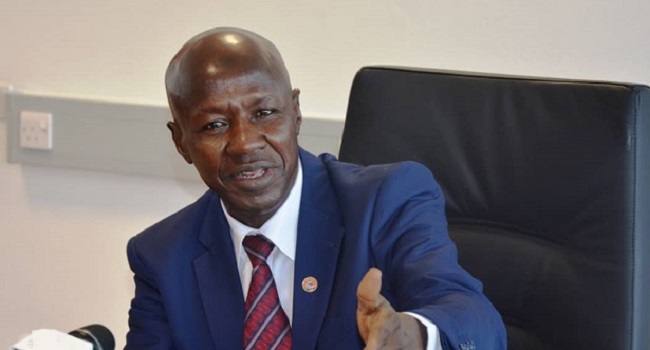Politics
EFCC recovers N527bn, $53m, £122,880 via Whistle-blowing policy

Acting chairman of Economic and Financial Crimes Commission (EFCC), Ibrahim Magu, has said that over N527 billion, $53 million and £122,880 has been recovered through whistle-blowing policy which the current government initiated in December 2016.
Magu made the disclosure when he spoke during a town hall meeting in Port Harcourt on whistle-blowing and the fight against corruption in Nigeria.
According to the EFCC boss, the anti-graft agency in may last year, recovered the sums following reports by members of the public against corrupt persons with fraudulent money.
“As at May 2018, we recovered over N527bn, $53m and £122,89 through the whistle-blowing policy. More successes are being made and the response by members of the public to the policy has been very encouraging.
“The government’s whistle-blowing policy, which was introduced in 2016, is geared towards fraud detection, tracking and reporting to appropriate agencies and to enable patriotic citizens to report criminal acts such as mismanagement or misappropriation of public funds and assets, like properties and vehicles; financial malpractice or fraud; collecting/soliciting bribes; corruption; diversion of revenues; unapproved payments; splitting of contracts; procurement fraud; kickbacks and over-invoicing,” he said.
READ ALSO: Obasanjo belongs to the ‘waste bin of history’- Gen Akinrinade
Magu, who was represented at the event by Usman Mukhtar, a top official of the commission, explained that the challenge the policy is facing is the fear of victimisation and attack, which Nigerians willing to report unscrupulous persons in the society to the appropriate anti-graft agency continue to express.
He however said that those fears are currently being addressed by the Whistle-Blower Protection Act passed by the National Assembly in 2017.
“Many would-be whistle-blowers are afraid of reprisals, attacks and other attendant risks involved in volunteering information about suspicious activities around them. However, this challenge is already addressed by the Whistle Blower Protection Act passed by the National Assembly in 2017.
“The Act provides that a person who makes a disclosure shall not be subject to victimisation by his or her employers or by fellow employees,” he said.
Join the conversation
Support Ripples Nigeria, hold up solutions journalism
Balanced, fearless journalism driven by data comes at huge financial costs.
As a media platform, we hold leadership accountable and will not trade the right to press freedom and free speech for a piece of cake.
If you like what we do, and are ready to uphold solutions journalism, kindly donate to the Ripples Nigeria cause.
Your support would help to ensure that citizens and institutions continue to have free access to credible and reliable information for societal development.






















